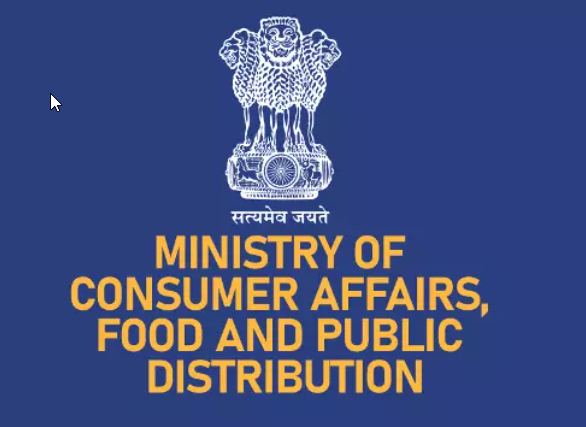Ministry of Consumer Affairs, Food and Public Distribution
The Ministry of Consumer Affairs, Food and Public Distribution is a ministry of the Government of India responsible for ensuring food security and protecting consumer rights in the country. The ministry is divided into two departments: the Department of Food and Public Distribution and the Department of Consumer Affairs.
Department of Food and Public Distribution
The Department of Food and Public Distribution is responsible for the management of the food economy in India. Its main functions include:
- Procurement of food grains: The department procures food grains, primarily wheat and rice, from farmers at minimum support prices (MSP) through the Food Corporation of India (FCI) and state agencies.
- Storage and maintenance of food grains: The procured food grains are stored in warehouses and silos maintained by the FCI and state agencies to ensure food security and to maintain a strategic reserve.
- Allocation and distribution of food grains: The department allocates food grains to states for distribution through the Public Distribution System (PDS) and other welfare schemes like the Midday Meal Scheme and the Integrated Child Development Services (ICDS).
- Sugar and edible oils: The department also regulates the sugar and edible oil industries, ensuring the availability of these essential commodities at reasonable prices.
Public Distribution System (PDS)
The Public Distribution System (PDS) is a food security system in India that distributes subsidized food and non-food items to the country’s poor and vulnerable population. The system operates through a network of fair price shops (FPS) across the country. The National Food Security Act (NFSA), 2013, legally entitles up to 75% of the rural population and 50% of the urban population to receive subsidized food grains under the PDS.
Department of Consumer Affairs
The Department of Consumer Affairs is responsible for protecting the rights and interests of consumers in India. Its main functions include:
- Consumer protection: The department enforces the Consumer Protection Act, 2019, which provides a framework for the protection of consumer rights and the resolution of consumer disputes.
- Price monitoring: The department monitors the prices of essential commodities and takes necessary action to prevent hoarding and black marketing.
- Legal metrology: The department enforces the Legal Metrology Act, 2009, which ensures the accuracy of weights and measures used in trade and commerce.
- Bureau of Indian Standards (BIS): The department oversees the functioning of the Bureau of Indian Standards (BIS), which is responsible for the formulation and enforcement of quality standards for goods and services.
Consumer Welfare Fund
The Consumer Welfare Fund (CWF) was established in 1992 with the objective of providing financial assistance to promote and protect the welfare of consumers. The fund is created from the proceeds of compounding offenses under the Central Excise and Salt Act, 1944, and the Central Excise Rules, 2002. The fund is used to finance various consumer welfare activities, such as consumer education and awareness programs, complaint handling, and the establishment of consumer clubs in schools and colleges.
National Consumer Helpline
The National Consumer Helpline (NCH) is a service provided by the Department of Consumer Affairs to help consumers resolve their grievances and provide information on consumer rights and welfare measures. The helpline, which can be reached at the toll-free number 1800-11-4000 or 14404, operates in multiple languages and is accessible from anywhere in India.


